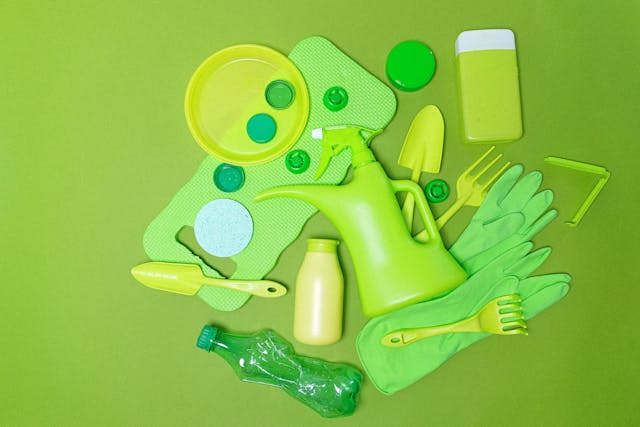The EU’s recently adopted new directive focuses on removing confusion around green claims for consumers. It will no longer be legal, within the EU, to make environmental claims without substantial evidence to back them up, also known as Greenwashing.
Greenwashing, the practice of presenting a product as more environmentally sound than it truly is, has become a prevalent issue. Consumers often find themselves swayed by misleading labels and eco-claims, only to discover the discrepancies later. Recognising the gravity of this problem, the European Parliament has taken a stern stance to stop such practices.
What Does the Law Encompass?
MEPs have set clear guidelines to ensure that products labeled as environmentally friendly are, indeed, walking the talk. The law encompasses:
Substantiated Claims: Companies must be able to back up their environmental claims with solid evidence. No more vague statements or greenwashing gimmicks.
If a product says it is recyclable/reusable, it must be able to be used a substantial amount of times.
Clear Labeling: Say goodbye to misleading labels! The law mandates clear and unambiguous information about a product's environmental impact. No more deciphering cryptic eco-jargon.
If a product is sold as being made from recycled plastic, it must have a substantial amount of recycled plastic content.
Harsher Penalties: The stakes are higher for companies caught green-handed. Fines and penalties have been ramped up to discourage deceptive practices.
What Does This Mean For You?
As a consumer it means that you are going to see less claims about how “green” businesses are, at least until they’re got the science behind them to be able to substantiate their claims. When you do see the claims, you are now able to make an informed decision knowing that the claims are backed by evidence.
As a business you are going to have to make sure that any claims you make about reducing your impact on the planet, have clear and concise data behind them. The Advertising Standard Authority (ASA) have some guidance on this here. The ASA is also clear that even if you have a high emissions product or service, you can still shout about the difference you are making.
"So, be reassured that if you’re in a business that has a high carbon footprint but are on a credible pathway to net zero or working towards other ambitious plans to shift your balance of activities, we are not going to ban your claims about those ambitions in ads so long as they tell a balanced story."
It is all about transparency, so as long as you know your product or service, then you know what environmental claims you can make. If this is something that you want to work on, then get in touch with me and I will be able to help you.
Global Precedent
The European Parliament's move is not just a local triumph; it sets a precedent for global change. As consumers become more discerning and demand transparency, companies worldwide will feel the pressure to adopt similar ethical practices.



